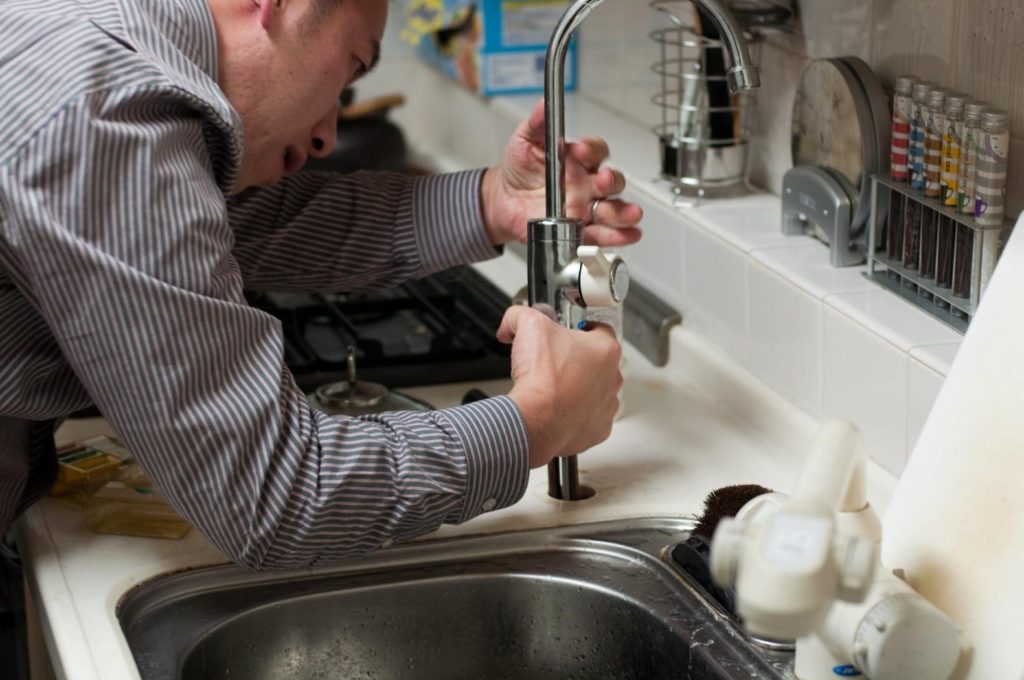Leaky faucets, clogged drains, and running toilets are all common problems that happen once in a while in every household. Learning how to fix minor plumbing problems can save you time and money, as well as prevent plumbing emergencies from getting worse. That said, here are simple plumbing skills everyone should know.
Turning Off the Water
A burst or leaking pipe can deal catastrophic damage to your property. It can harm your house’s foundation and encourage the growth of pesky molds. For that reason, everyone in the house (not just Mom and Dad) should know how to turn off the water in the house.
Locate the shut-off valve in your house. Most homes have their shut-off valve in the basement, garage, or on the outside wall of a utility closet or room. Practice with your family members—even the kids too—or roommates. Turning off the water must be the first thing you do if a plumbing emergency occurs.
Fixing a Leaky Faucet
Leaky faucets are not only annoying, but they’re also a huge waste of resources. Every year, 900 billion gallons of water is wasted due to unfixed leaks in American households while some people are living without access to clean water in some parts of the world.
Every drop from a leaky faucet costs you money, but you can put a stop to the waste with a few tricks. Many leaky faucets can be resolved by changing the washer or tightening the faucet with a wrench. If both don’t work, you may need to get a replacement. Fortunately, they’re easy to install. Just refer to the manufacturer’s instruction included in the package.
Stopping a Running Toilet
Your toilet isn’t flushing by itself because it’s being haunted by a ghost (although the phenomenon is called phantom flushing). A running toilet is caused by a defective flapper, which can be found inside the toilet tank and stops water from flowing.
Fixing the chain that holds the flapper usually solves the problem. But if the problem isn’t the chain, check the arm that it’s attached to. You either need to adjust the chain to the right length or change it and the flapper. In order to avoid this problem, you need to look into toilets with 10 inch rough in .
Clearing a clogged toilet is relatively easy as long as you have the right plunger at hand. Yes, there’s a different plunger for that, and it’s known as a flange plunger. Different from the common sink plunger, a flange plunger has a smaller protruding cup to fit the curved drain of a toilet.
To clear a clogged toilet, turn off the water first to avoid overflowing the toilet. Next, place the flange plunger on the opening, making sure that the cup is submerged in water, and give it few shoves to push whatever is stuck in the drain.
If a flange plunger doesn’t work, you can also use a toilet snake or auger, which is long wire coil with a solid handle, to reach deeper into the toilet drain and push the block. Here’s a tip: add hot water and dishwashing detergent to soften whatever is blocking your toilet and make it easier to flush it down the drain.
If you don’t want to avoid a clogged toilet, consider replacing your old toilet with one that has a motor grinder, like the SaniBest Pro toilet with its own macerating pump that breaks down wastewater for to prevent clogs.
Clearing a Clogged Drain
You can use chemicals to clear clogged or slow-running drains. Or you can try a natural approach using baking soda, vinegar, and boiling water if the tub or sink isn’t steeped in water. If either of these solutions doesn’t work, you may have to go the manual way. You can use the common sink plunger to push down the blockage.
Some sinks have a garbage disposal unit. Make sure to turn that off first to avoid accidents, then proceed to drain your sink or tub with a plunger. Sometimes, you may have to remove clumps of hair and debris blocking your drain in order for your plunger to be effective.
Last Thoughts
Hiring a plumber to solve minor plumbing problems can cost from $40 to $200 per hour. Learning how simple plumbing skills—like fixing leaky faucets, unclogging drains and toilets, or stopping a running toilet—can help you save a lot of money. In case of plumbing emergencies, you don’t have to wait hours or days until the appointment with your plumber to get the problem fixed.

